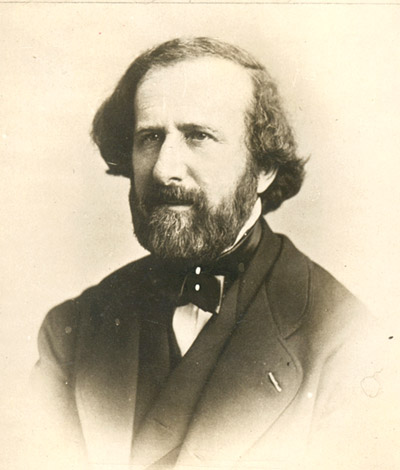<Back to Index>
- Physicist Armand Hippolyte Louis Fizeau, 1819
- Writer Jaroslav Seifert, 1901
- King of Spain Ferdinand VI, 1713
PAGE SPONSOR

Armand Hippolyte Louis Fizeau (September 23, 1819 – September 18, 1896) was a French physicist.
Fizeau was born in Paris.
His earliest work was concerned with improvements in photographic processes. Later, following suggestions by François Arago, Léon Foucault and Fizeau collaborated in a series of investigations on the interference of light and heat. In 1848, he predicted the red shifting of electromagnetic waves. In 1849 he published the first results obtained by his method for determining the speed of light (Fizeau - Foucault apparatus). Fizeau in 1864 made the first suggestion that the "length of a light wave be used as a length standard". He was also involved in the discovery of the Doppler effect.
In 1853 he described the use of the capacitor (then called the condenser) as a means to increase the efficiency of the induction coil. Subsequently he studied the thermal expansion of solids, and applied the phenomenon of interference of light to the measurement of the dilatations of crystals. He became a member of the Académie des Sciences in 1860 and of the Bureau des Longitudes in 1878. He died at Venteuil on September 18, 1896.
His name is one of the 72 names inscribed on the Eiffel Tower.